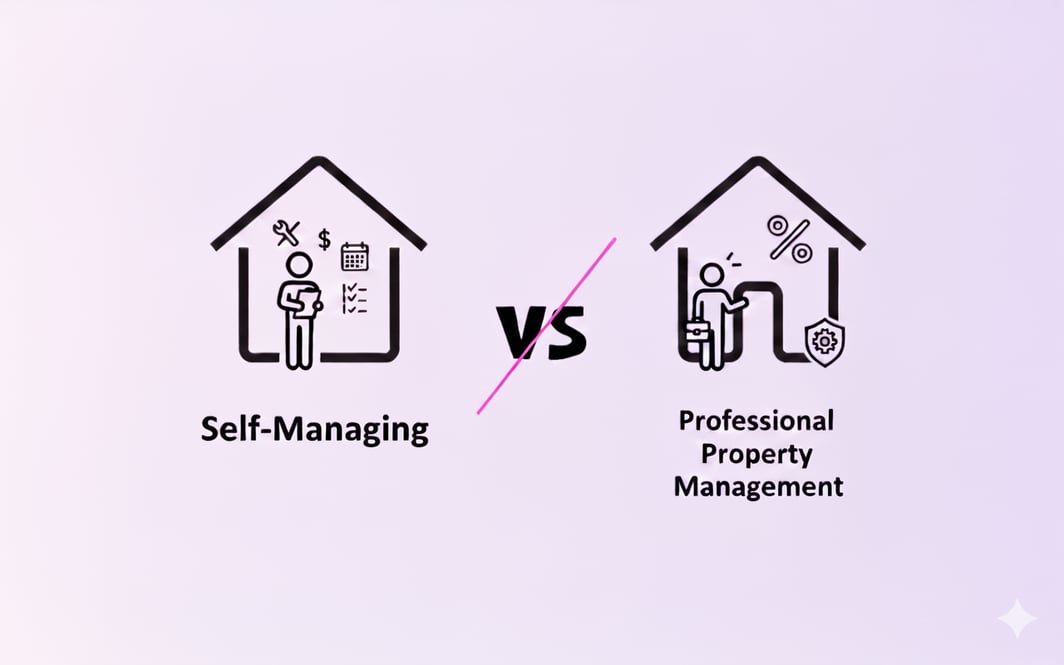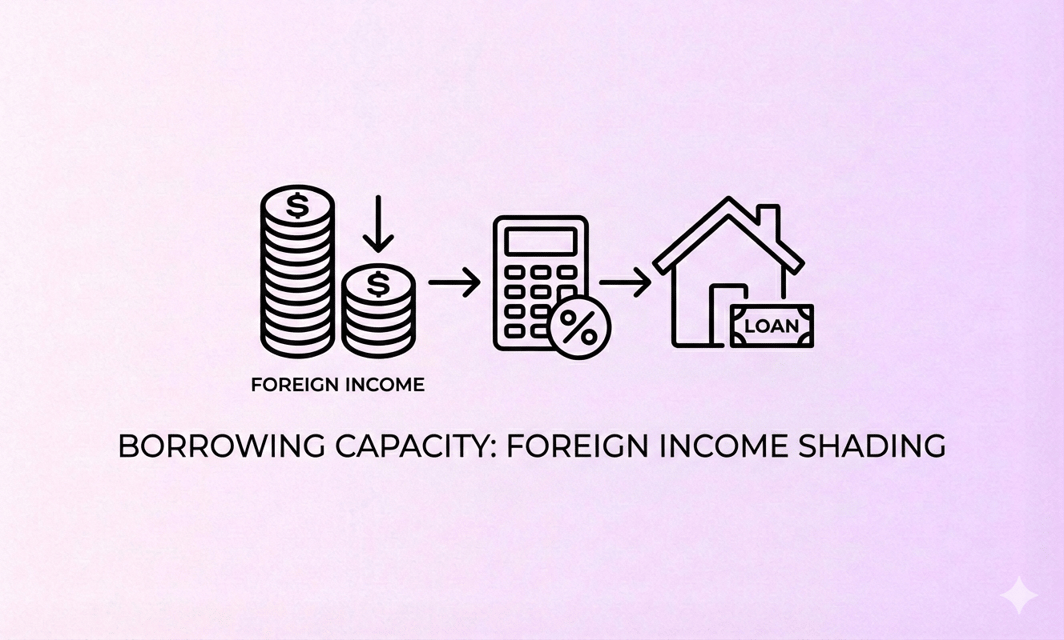The DIY landlord dilemma: self-managing vs. professional property management in NSW
You’ve just bought your first investment property in Parramatta. The ink’s barely dry, and the big question hits: do you manage it yourself to save a few grand, or hand the keys to a professional and buy back your weekends? It’s a classic Australian dilemma for anyone with a self-managed investment property. The allure of saving that 6-10% management fee is strong, but the reality of a 2 a.m. call about a burst pipe can quickly sour the deal.
If you own an investment property in New South Wales, whether in Sydney or a regional town, this choice is about more than just money. You also need to consider your time, stress levels, legal risks, and how your property will perform in the long run. Managing things yourself can be rewarding, but it comes with plenty of challenges. Here’s a closer look at what’s involved in self-managing a rental property in NSW, and how it compares to using a professional.
A Step-by-Step Guide: How to self-manage a rental property in NSW
If you’re ready to manage your rental property on your own, that’s a big step. Before you put up a 'For Lease' sign, make sure you have a solid plan. Managing a property is more than a quick weekend job—it’s a real business.
Step 1: Get Your Legal Affairs in Order. Start by organising your paperwork. This is essential. Ensure you have a written tenancy agreement that meets the NSW requirements. Avoid generic templates and ensure that your agreement covers all necessary elements. Before your tenant moves in, complete a detailed condition report. his will help protect you in the event of a dispute regarding damage. Many self-managing landlords encounter difficulties because their documentation isn’t thorough enough, which can harm their case if it is presented.
Step 2: Pricing and Advertising Setting the right rent is a balancing act. Too high, and you risk a vacant property bleeding you dry. Too low, and you're leaving money on the table. Do your homework. Research comparable properties in your postcode. Once you have a price, advertise effectively. This means great photos, a compelling description, and listing on major platforms where tenants are looking.
Step 3: The Tenant Hunt. Finding the right tenant is crucial. A good tenant makes things easy, while a bad one can cause a lot of stress. Take your time with this step. Request a detailed application, verify references by contacting them, and consider conducting tenancy database checks. Try not to let emotions guide your choice—a good story doesn’t always mean a reliable renter.
Step 4: Bond, Keys, and Move-In Once you’ve found your tenant, collect the bond (maximum of four weeks' rent in NSW) and lodge it with NSW Fair Trading's Rental Bonds Online service. This is a legal requirement, not a suggestion. Provide your tenant with a signed copy of the lease, the completed condition report, and the keys. Welcome them to their new home and establish clear lines of communication from day one.
Step 5: Ongoing Management. Once your tenant has moved in, your responsibilities continue. You’ll need to collect rent, organise repairs, carry out inspections with the proper notice, and deal with any problems that arise. Keep clear records of all payments, conversations, and repair requests. Good documentation will help you if there’s ever a disagreement.
Pros & Cons of self-managing investment properties in Australia
Choosing to manage your property yourself is a major decision. It’s essential to consider both the advantages and drawbacks before making a decision.
The Pros:
- Cost Savings: This is the big one. You avoid professional management fees, which in NSW typically range from 5% to 12% of the weekly rent. That can add up to thousands of dollars a year straight back into your pocket.
- Total Control: You're in the driver's seat. You choose the tenant, you set the rent, you decide which tradie to use for repairs. This hands-on approach appeals to many investors who want to be intimately involved with their asset.
- Direct Relationships: By communicating directly with your tenants, you can build a strong rapport. This can lead to longer tenancies and better care of your property, improving tenant retention.
The Cons:
- The Time Sink: Managing a property is a serious time commitment. It’s not just collecting rent; it's advertising, showings, inspections, paperwork, and late-night phone calls. Do you have the hours to spare?
- Legal Labyrinth: Landlord-tenant law in NSW can be complex and subject to frequent changes. Ensure you are familiar with the current regulations, including the Residential Tenancies Act and any upcoming laws scheduled to take effect in 2025. Even a minor mistake can result in a hearing at the NSW Civil and Administrative Tribunal (NCAT).
- The "Hidden Costs": While you save on fees, self-management can have its own costs. Consider longer vacancy periods due to less effective marketing, higher repair bills because you lack a network of trusted tradespeople, or the financial impact of a messy eviction. These hidden costs can quickly erode your savings.
- Emotional Toll: Handling tenant problems, late rent, and disputes can be very stressful. A professional manager can take on these challenges for you, but if you self-manage, you’ll need to handle everything yourself.
Self-Managing vs hiring a property manager: The showdown
When you compare self-management to hiring a property manager, the differences are clear. It’s not only about the cost, but also about the value, risks, and level of expertise involved.
A professional property manager in NSW must hold a Certificate IV in Property Services (Real Estate) and be licensed. A self-managing landlord needs… well, nothing. This qualification gap is where many of the risks lie. A licensed agent is trained in the legislation, understands trust accounting, and is bound by professional rules of conduct.
Financially, there’s more to consider than just the management fee. Self-managing can be riskier, especially in areas with high vacancy rates, such as NSW. Property managers typically have access to better marketing tools and screening methods, which can help you find and retain quality tenants. They can also help prevent missed rent payments. If you lose a month’s rent because of a poorly managed vacancy, it could cancel out a whole year’s worth of savings from doing it yourself.
There’s also the legal side to think about. A good property manager helps you stay compliant with the law. They handle paperwork, ensure notices are properly given, and know how to resolve disputes. This lowers your chances of being sent to NCAT.
The Legal Minefield: requirements for self-managing
If you choose to self-manage, you are legally responsible for everything a professional agent would be. Ignorance of the law is no excuse. The Residential Tenancies Act 2010 is your bible, and you need to be familiar with it thoroughly.
Common compliance failures by self-managed landlords that result in an NCAT order favouring the tenant are alarmingly frequent. The top offenders include:
- Failure to Maintain the Premises: This is a huge one. Landlords are legally obligated to keep the property in a reasonable state of repair. Ignoring requests for urgent repairs, such as a major water leak or electrical fault, can lead to NCAT ordering you to perform the work and even requiring you to pay the tenant compensation.
- Unlawful Entry: You cannot simply enter whenever you please. The Act specifies strict notice periods for entry, and failing to comply with these can result in a serious breach of the tenant's right to quiet enjoyment.
- Bond Mishandling: Failing to lodge the bond correctly or making an unreasonable claim at the end of the tenancy are common routes to an NCAT dispute. Bond disputes are particularly prevalent in self-managed situations, often due to poor communication and inadequate entry condition reports.
- Improper Notices: Whether it's a rent increase or a notice to terminate the tenancy, there are prescribed forms and timeframes that must be strictly followed. Getting it wrong can render your notice invalid.
If you don’t meet these requirements, you could face legal penalties and the stress and cost of going to a tribunal hearing.
Managing tenants, repairs, and compliance on your own
Being a successful DIY landlord comes down to having systems, effective communication, and a thorough understanding of your legal obligations.
Managing Tenants: The key is proactive and professional communication. Treat your tenants like customers. Respond to their queries promptly and respectfully. Document all significant conversations in writing (email is great for this). A strategy of clear communication can prevent minor misunderstandings from escalating into major disputes. If a conflict does arise, try to resolve it directly first. If that fails, NSW Fair Trading offers a free dispute resolution service that can help mediate the issue before it goes to NCAT.
Managing Repairs: You need a clear process for handling maintenance. Tenants must know how to report issues, and you need to respond quickly, especially for urgent repairs. Under NSW law, urgent repairs include issues such as a burst water service, a blocked toilet, a serious roof leak, or a gas or electrical fault. You are obligated to address these promptly. For non-urgent repairs, you must still act within a reasonable timeframe. Having a list of reliable, licensed tradies on speed dial is a must. Tenants have the right to seek remedies through NCAT if you fail to carry out repairs, and self-managed landlords may face more of these orders due to a lack of formal processes.
Managing Compliance: Stay up to date, as laws can change. Use resources like the NSW Government’s landlord portal and the Tenants’ Union of NSW website. Ensure all your documents are organised and easily accessible, including the lease, condition report, bond receipt, rent records, and any relevant correspondence. Good paperwork will protect you in the event of a dispute.
Summary: Self-Managing vs Professional Property Management
Making the Choice: Self-Management or Professional Services
Deciding between self-managing and hiring a professional property manager depends on several factors including your available time, budget, and personal expertise. An owner who is tech-savvy and enjoys hands-on management may prefer self-management, especially if cost savings are a priority. Conversely, owners who value their time or have multiple properties might find that professional management reduces stress and ensures consistency in service. There’s no single right answer. Be honest about your skills, time, and how much risk you’re willing to take. Saving on fees is tempting, but think about how much you value peace of mind. Some investors do well managing on their own, while others find a property manager’s help worth the cost.




